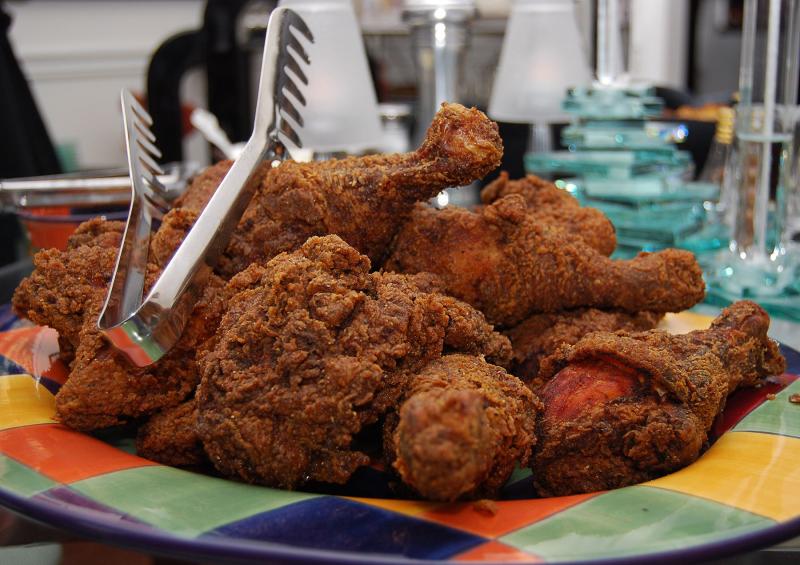From eggs in Delmarva to poultry worldwide
Several weeks ago I had the pleasure of meeting Jim Perdue, executive chairman of the family of companies that bear his name. The Perdue story began with Jim’s grandfather, Arthur. After receiving an accounting degree in 1920, he noticed that many of the people doing well in the food business were selling eggs. So he went into the egg business, marketing them commercially in Salisbury, Md.
Back in those days, you couldn’t buy prepared chicken meat. You either had to raise them yourself or go to a farm and buy one. Interestingly, 1928 marked the first instance of a person selling cut-up chicken meat. An Ocean View woman named Wilma Steele began to raise chickens for their meat, salting and packing them in barrels to be shipped to New York for sale.
Things continued to do well for Jim’s grandfather, who swore that he would never borrow money to expand. As a result, the company grew very slowly, but it grew debt-free. That is, until 20-year-old Frank, Arthur Perdue’s only child and first employee, realized that a major cost of the chicken business was in acquiring the feed. Why not build a soybean crushing plant to manufacture your own feed? But there was one catch: Young Frank needed dad’s co-signature for the bank loan. Arthur relented, thus heralding Perdue’s vertical integration in the business of chickens, i.e., in Jim’s words, total control “from egg to package.”
Though Frank Perdue is most remembered for his humorous TV ads, what many people don’t know is that that was the very last thing he wanted to do. But after relentless cajoling from family and business associates, Frank finally asked, “Will it sell more chickens?” The answer was a wholehearted yes, and slogans like “My chickens eat better than you do” became household phrases. Anyone who keeps track of these things attributes Frank’s most popular saying to him, but, “It takes a tough man to make a tender chicken!” was actually the brainchild of Perdue’s ad copywriter at the time, Ed McCabe. That moment and Frank’s singular TV persona singlehandedly changed a simple commodity into a branded product.
Knowing my interest in restaurants, Jim shared a story about his company and the restaurant business. It seemed self-evident that if they were producing chickens for consumers and restaurants, then the Perdue companies could open chicken restaurants of their own. They even bought land in New York and in New Jersey, anticipating their meteoric success in food service. I suspect that restaurant owners who have made it this far into this column are now raising their eyebrows and chuckling. It was a massive misstep, brought home in spades when one of their restaurant GMs asked for permission to purchase chickens from one of Perdue’s competitors. His reason made sense … sort of; he cited the fact that Perdue’s products were too expensive. Jim remembers one of the executives marching the GM out into the parking lot, and asking him to read the name on the sign attached to the building. Arthur Perdue always liked to say, “Stick to your knitting.” They didn’t, and their venture into restaurants ended ignominiously.
Perdue is the third-largest poultry producer in the United States, and one of the top 10 grain companies in the world. From those powerful positions, the worldwide Perdue Agribusiness has been instrumental in spearheading the move to organic products. So what hoops must a company jump through to call something “organic?” The requirements are clearly spelled out and strictly monitored. The grains from which the chicken feed is made must be 100 percent pesticide/herbicide free, and totally non-genetically modified. The farms from which they are sourced must have been growing product that way for at least three years before they can sell their harvest as organic.
The chickens must be raised in what are called “lower density” environments where they have more room to go outside, to walk around, and to live under normal light/dark hours. Additionally, no pesticides or herbicides - including those used for pest and rodent control - can be used anywhere near where the chickens are living. Perdue has even gone a step further by investing millions in more humane and painless ways to dispatch the animals for processing.
All those requirements might sound virtuous on paper, but they turn out to be very expensive in reality. For example, harvest yields are substantially less because of weeds and plant-eating bugs. So it takes more land to produce the same income as a conventional farm. In addition, over 90 percent of seed in the U.S. is genetically modified in one way or another, so acquiring and using non-GMO seed comes at a very high cost. After all, two-thirds of the cost for chicken is the feed.
Jim Perdue and his companies have faced these hurdles head on by owning and operating their own organic farms, thus cutting out the cost of grain brokers and middlemen. They are also experimenting with longtime Heritage breeds of chickens. Called “brown-feathered,” these creatures are more active. The downside - from a purely profit point of view - is that they are smaller. But they taste better, and people flock to buy them. All this effort is paying off: Perdue is the largest producer of organic chicken in the country.
In 2020, the Perdue family of companies will be 100 years old. And the wisdom of Jim’s father and his grandfather was evident when he told me, “You can do all this organic processing, all this extra expense and all this selective breeding - but if the chicken doesn’t taste good, nobody will buy it.” After almost a century, Jim and his family have “stuck to their knitting”; investing millions in reversing some of the traditional profit-making advances in favor of sustainability, humane treatment and consumer health. As a result, the consumer cost of organic product has dropped, and if in-store and restaurant sales are any indication, people love the taste and texture of the products.
One of the oldest Perdue TV ads shows grandad Arthur Perdue introducing his son Frank to the public. At the end, the camera zooms in and he intones, “It takes a tough man to make a tough man.” After meeting Frank’s son Jim, it appears that that toughness is an inherited trait.





















































